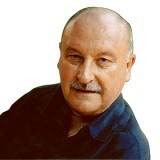Watching the news about Ukraine the last few days, one of the questions that came to mind is where does Sergei Bubka stand on the Russian Invasion? I wrote Walt Murphy and he sent back this article by Alan Hubbard which appeared yesterday on the Twitter feed @insidethegames. It tells us where Mr. Bubka's interests probably lie. Alan certainly has more insight and experience than me. Although I have personally watched an authoritarian army move on its own in Beijing in 1989, and I'm sure those days which soon followed with the fall of the Berlin Wall and the crumbling of the Soviet Union are still burning in Vladimir Putin's craw. Putin has outplayed the West on this occasion, and I fear that his next moves will be on the Baltic States of Estonia, Lithuania, and Latvia. No one wants to trigger a nuclear war, and Putin has Germany and other western republics over a barrel on gas exports. Of course our former president says he could have managed the situation, but I sense that Vladimir was so far up his butt that he would have recited Dostoevsky's "The Idiot" on Putin's command. Even though Russia will be sanctioned in sport for these 'deeds' it is doubtful that any change in attitude will occur. Change will only come from within, if anywhere. Long live a free and independent Ukraine.
George Brose
Alan Hubbard: Will sporting sanctions help stop Putin's war games?

As Putin's platoons march menacingly into Ukraine, the world waits anxiously to see whether a sporting giant can push the intransigent Russian dictator into playing the game.
Unfortunately, unlike the heavyweight-punching Klitschko brothers of Ukraine, another legendary homespun sporting icon - pole vaulter Sergei Bubka - has been a supporter of the deposed President Viktor Yanukovych and like him, has favoured strengthening ties with Russia - not a popular view in the current climate.
The globally-popular Klitschko brothers were born in Ukraine when it was part of the Soviet Union, taking Ukrainian citizenship after the fall of the Iron Curtain in 1991.
While all three legendary heroes are products of the same Soviet sporting system in their homeland, Bubka and the Klitschko's are not close because of their political differences.
Following his retirement, Bubka who won a gold medal for the Soviet Union at Seoul 1988, spent four years as a member of the Ukraine Parliament, where he represented the former President’s pro-Russian party.
He also unsuccessfully ran for the Presidency of the International Olympic Committee and the IAAF, now World Athletics, being beaten by Thomas Bach and Lord Sebastian Coe respectively.
Meanwhile, 50-year-old Vitali Klitschko, two inches taller than his 6'6' sibling Wladimir, became a leader of Ukraine’s protest movement and subsequently, a hugely popular mayor of Kiev, where he has been vocally strident as the current crisis escalates.
Both have declared their intention to physically defend their families and their country.
Wladimir, last seen in the UK in a tremendous fight with fellow Olympic gold medallist Anthony Joshua, has even enlisted within Ukraine’s Territorial Army.
This week, he sent out a message via social media saying "Be sure, Ukraine is strong and united. It’s fighting talk. Glory to Ukraine!".
Unlike Bubka, Vitali is no pal of Putin, though ironically, the last of his 45 fights was in Moscow, where Putin sat ringside joining in the hearty applause for his victory.

To add to the sporting spice in this battle of giants, Putin has invited his own huge heavyweight Nikolai Valuev to assist his propaganda machine.
Valuev, a tad over 7 feet tall, became a member of the Russian Parliament when he lost his version of the world title to Britain’s David Haye.
So the 58-year-old Bubka finds himself in an invidious situation as things escalate.
As head of Ukraine’s National Olympic Committee, he cannot appear to be anything less than a true patriot.
But he finds himself in the opposite corner to the Klitschko's.
Nelson Mandela famously said that sport can change the world.
It will be interesting to see if sport, as it did in South Africa, is a catalyst for change.
It seems little has changed since Russia reclaimed Crimea.
Whether sport can change the intransigent mind of Vlad the Invader, as it helped to do in the land of apartheid, is highly doubtful, but it could be worth trying.
The prospect of being made sporting pariahs via boycotts is said to have proven essential in the rethink by blinkered Afrikaners.
Usually, I am not in favour of boycotts but the impact a Russian takeover of Ukraine may have on the rest of the world is too awful to contemplate.
Russia has become sport’s rogue nation.
Taking away the UEFA Champions League final scheduled for Saint Petersburg on May 5 could be the catalyst to banish all showpiece sport from Russia, leaving their stadiums as cold as a Siberian winter, until Putin stops playing his own game of political hardball.





No comments:
Post a Comment